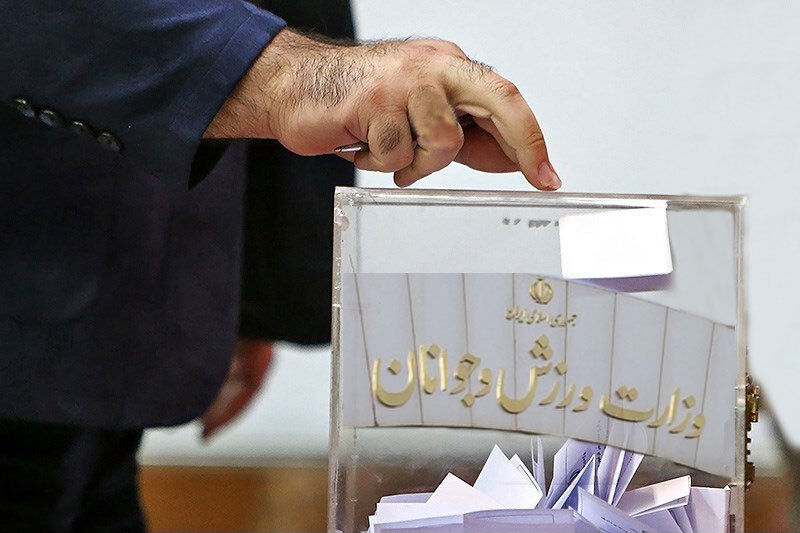‘They’re forcing us to gain weight’: Select foods allowed in Gaza as essentials remain missing
‘They’re forcing us to gain weight’: Select foods allowed in Gaza as essentials remain missing

In supermarkets that reopened across Gaza following a ceasefire that ended two years of war, Monther al-Shrafi finds shelves overflowing with chocolate, soft drinks, and cigarettes, items that once felt like a “dream” during the famine.
But as these luxuries return in abundance, he says the essentials are still missing, including basic foods like eggs and vital medicines such as antibiotics.
“Can you imagine that there is chocolate in Gaza while there are no antibiotics? Or there are fruits but no wound dressings or sutures?” Shrafi, a resident of Gaza City, told Middle East Eye.
“Here in Gaza, there is a shortage, or even near absence, of essential items that the human body needs, such as meat, chicken, fish, and eggs, which are basic components of a healthy diet.”
After the ceasefire between Israel and Hamas took effect on 10 October, Israeli authorities partially reopened the Kerem Shalom border crossing in southeast Gaza.
For the first time since the Israeli army sealed the borders on 2 March, pushing the Strip into a state of starvation that has claimed the lives of hundreds of Palestinians, goods and international aid were allowed in.
Alongside some fruits and vegetables, the permitted items included carbohydrates and starches such as wheat flour, semolina, rice, pasta, canned corn, and potatoes; sugar like chocolate, candies, and jam; fats such as butter, processed cheese, and canned cream; and other secondary goods including cigarettes and soft drinks.
However, animal proteins remain largely restricted. Eggs are completely missing, dairy products are mostly unavailable, and frozen chicken and beef are allowed only in very limited quantities, making their prices unaffordable for the vast majority of residents.
For example, when available, one kilogram of frozen chicken now costs around 80 shekels (around $25).
'Can you imagine that there is chocolate in Gaza while there are no antibiotics?'
- Monther al-Shrafi, Gaza City
“I don’t feel any improvement in the food situation [after the ceasefire], because the items available in Gaza are unhealthy,” Shrafi said.
“Canned and dried foods cannot replace basic natural foods like eggs and fresh meat. So there is no recovery from the effects of famine.”
Shrafi said that on several occasions, he went from pharmacy to pharmacy in search of certain medicines but could not find them.
“My daughter suffered from an infection in her toe, and I could not even find painkillers to ease her suffering,” he added.
“Antibiotic pills are missing, and if available, they are sold at exorbitant prices far beyond the reach of ordinary citizens, who have been crushed over two years of ongoing extermination.
“Pharmacies, medical supply stores, and hospital departments in Gaza are completely empty of many essential items that patients need.”
'A fraction of what is needed'
According to Gaza’s Ministry of Health, Israeli authorities still impose severe restrictions on the entry of medicines and medical supplies and equipment, even after the ceasefire agreement.
“These persistent restrictions have led to shortages in drugs reaching 56 percent, while shortages in medical consumables are at 68 percent, and laboratory supplies at 67 percent,” said Zahir al-Wahidi, director of the Health Information Unit at Gaza’s Ministry of Health.
“Orthopaedic surgeries face an 83 percent shortage, open-heart surgeries 100 percent, and kidney services and bone fixators 80 percent. The most severe gaps are in emergency services, anaesthesia, intensive care, and medications for surgical procedures.”
Traders and international organisations operating in Gaza must obtain permission from Israeli authorities for the items they can bring into the blockaded Strip.
The restrictions are imposed either through direct orders and lists of banned goods, or indirectly by leaving import requests for certain items pending or denying them outright.
As a result, many essential supplies have been unavailable for more than two years, while other items flood Gaza.
“What has entered over the past year is only a fraction of what is needed, six or seven small shipments that do not cover the requirements for a large number of drugs and consumables, which should cover two years of deprivation,” Wahidi added.
‘Abnormal’ weight gain
Over the past three weeks, dozens of truckloads have entered Gaza, reviving its markets for the first time in months. Hundreds of street vendors now display the vibrant colors of chocolates, various types of coffee, and some fruits.
“Most of these goods consist of carbohydrates, sugars, and starches,” Abdallah Sharshara, lawyer and legal researcher from Gaza, told MEE.
'Israel is creating a misleading impression that the blockade on the Palestinian people has been lifted'
- Abdallah Sharshara, lawyer
“These include flour and various types of cheese used in sweets and pizza, in addition to sugar and flour derivatives used in confectionery production.
“It is clear that this focus on importing such items indirectly pushes people to rely on them as their main food source, while also forcing humanitarian organisations to focus on purchasing and distributing these products, as they are the only ones available in the local market.”
Sharshara explained that Israeli authorities also create conditions that “discourage traders” from bringing in high-risk products, such as eggs, which may spoil during the long waiting periods.
He noted that Israel is deliberately allowing certain food items into Gaza to “cover up the visible signs of weight loss seen in the population over the past year.
“There is now an abnormal increase in people’s weight. It appears that the Israeli occupation is trying to conceal the crime of starving Palestinians by creating an opposite image, one of rapid and unnatural weight gain,” he said.
Sharshara shared that he personally had lost around 20 kilograms over the past year during Israel’s blockade of Gaza, but is now gaining weight rapidly.
“I had lost weight because of the limited and repetitive food options we were forced to eat throughout the past year,” he said. “Now, I eat the same portions, but they lead to weight gain because I am compelled to consume carbohydrates, processed cheese, and manufactured meat, that’s what’s available.
“They’re forcing us to gain weight systematically.”
In several posts on social media, people in Gaza shared the same impression, noting that they can find different kinds of secondary items, but not the essential items that have been missing for around two years.
“Israel is creating a misleading impression that the blockade on the Palestinian people has been lifted, as people are now eating a lot of pizza and sweets, giving the illusion of comfort or abundance,” Sharshara said.
“Fresh meat and eggs are still banned from entering Gaza, and fishermen are only allowed to fish within a very limited maritime area.
“The goal of allowing goods to enter partially is to prevent anyone from claiming that Israel is blocking them completely. But in reality, when you divide these goods by the actual needs of the population, the per-person share is extremely small.
“That’s why we say that even if Israel allows some goods in, they do not truly reach the people.”













